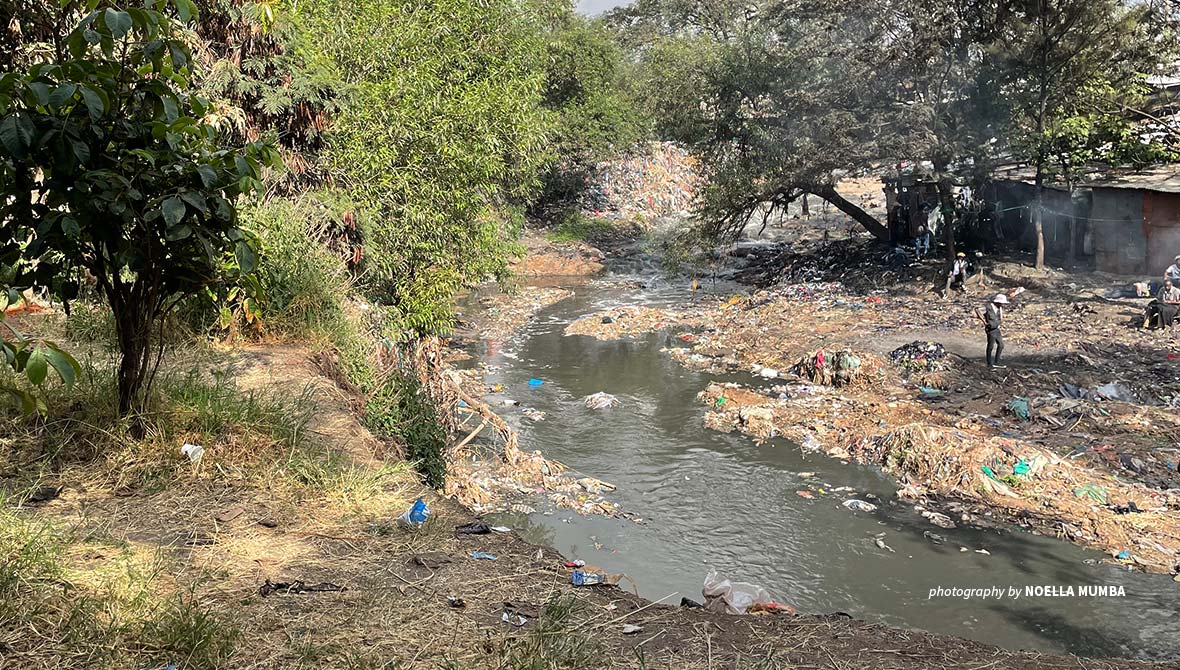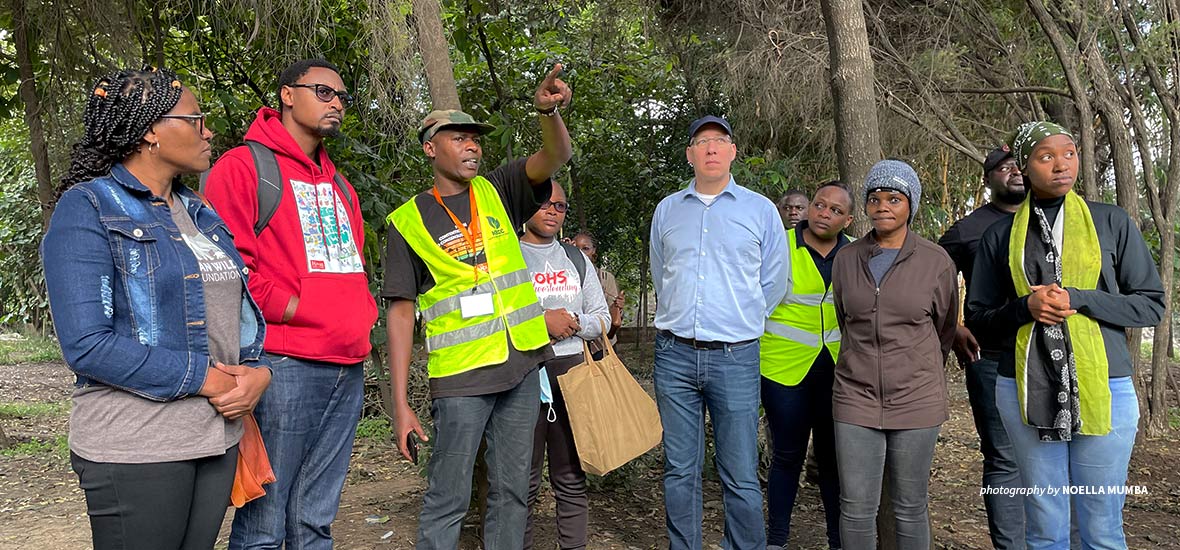Choked rivers: The cost of inaction on plastic pollution in Kenya

Plastic pollution on the Nairobi River flowing near the Kamukunji Park Grounds in the capital city of Kenya
On December 15, 1972, the U. N. General Assembly adopted a resolution designating June 5 as World Environment Day, urging “Governments and the organizations in the United Nations system to undertake on that day every year world-wide activities reaffirming their concern for the preservation and enhancement of the environment, with a view to deepening environmental awareness and to pursuing the determination expressed at the Conference.” On June 5, 1973, the world first commemorated this anchor day.
This year, as we celebrate it for the 50th time, it is imperative that we reflect on the state of the planet we call home and confront the cost of our inaction. This year’s theme, ‘Solutions to Plastic Pollution,’ reminds us of the environmental negligence and disregard that impacts the natural world and our well-being.
Plastic pollution is a menace and has emerged as one of the most pressing environmental issues of our time. We feel its adverse effects in the air we breathe, our soil, our oceans, and declining flora and fauna. No one is spared by plastic pollution. It is a global issue that demands immediate attention and coordinated action.
During this year’s celebrations, I joined the Canadian High Commission in Kenya, CRAWN Trust, and Kamukunji Environment Conservation Champions (KECC) CBO at the Kamukunji Park Grounds. As we toured the area and the Nairobi River adjacent to the park, I could not help but compare it to the river I remember growing up. Fifty years ago, the Nairobi River was very clean and rich with aquatic biodiversity. Today, it chokes with plastic waste. This phenomenon did not occur overnight or in the span of a week. It probably started with a piece of plastic that turned into two pieces, that turned into 10, and eventually, the endless bed of plastic that we see today.
Our passivity on plastic pollution has a catastrophic impact on the ecosystem. According to the U.N. Environment Programme, chlorinated plastic can release harmful chemicals into the surrounding soil, which can then seep into groundwater or other surrounding water sources, and the larger ecosystem. This can cause a range of potentially harmful effects on the species that drink the water.
Kenya’s National Environment Management Authority (NEMA) National Solid Waste Management Strategy, 2014, states that Nairobi produces an average of 2,400 tons of waste per day, 30 percent of which is plastic. Part of this waste ends up in the Nairobi River, threatening not only aquatic life but also human health by entering our food chain.
In 2017, Kenya banned single-use plastic bags in a move lauded as visionary. Again in 2020, single-use plastics were prohibited in Kenya’s protected areas. Despite the ban’s success, it has not been sufficient to end the nation’s pollution problems because it excluded numerous other plastic products, such as bottles, trash bags, and takeout containers. The pollution along the Nairobi River and other spaces reflects our cumulative inaction. Had we played our part in keeping it as clean as it was five decades ago, we would be proudly working on maintaining it.
However, despite this ugly reality, it is not all doom and gloom. This World Environment Day is a reminder to focus on finding solutions to the plastic nightmare our country faces. It reminds us that the power to reverse the damage we have caused to our environment lies in our hands.

AWF Country Director, Kenya Nancy Githaiga (first from left) at the Kamukunji Park Grounds on World Environment Day 2023
How can we beat plastic pollution in Kenya?
The ban on single-use plastic is a step in the right direction. To effectively ensure its success, we must intentionally reduce our individual as well as collective plastic consumption. We should seek sustainable solutions, reduce, reuse, recycle, and educate the masses on the responsible use of plastic.
Additionally, we ought to invest in an efficient waste management infrastructure. The amount of plastic entering our environment can be significantly decreased using effective garbage collection, separation, recycling, and disposal methods. We should ask the government to allocate resources for proper waste management. In the same breath, we should also press businesses to take responsibility for their plastic footprint and embrace eco-friendly procedures throughout their supply chains.
Seeing our political leaders pushing for laws and policies in the nation that enable more decisive action on climate change and environmental governance is very promising. Honorable Waithera Chege, the Member of County Assembly for Nairobi South Ward, who was present at the World Environment Day celebration at the Kamukunji Grounds Park, reiterated the critical role of environmental policies that ensure Nairobi regains its status as the green city in the sun.
“I am aware of the pressing environmental issues within the county, that’s why I spearheaded the Air Quality Bill. This bill links to the national legal frameworks, such as the air quality regulations under the Environment Management and Coordination Act, as well as grassroots actions by residents to tackle air pollution emanating from industrial sources. When these laws and policies exist, it becomes easier for citizens and civil society organizations to push for implementation as opposed to where none exists,” articulated Hon. Waithera.
The cost of our neglect is too high to bear. If we choose to continue with this trend, the damage we will cause to the environment will be irreversible. Let us be the ones to break that cycle of inaction and instead drive solutions for plastic pollution. An action a day towards restoration will be beneficial not only for us but the future generations from whom we have borrowed the earth.